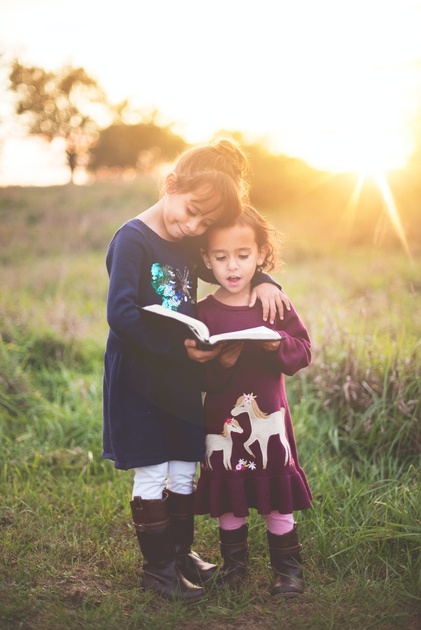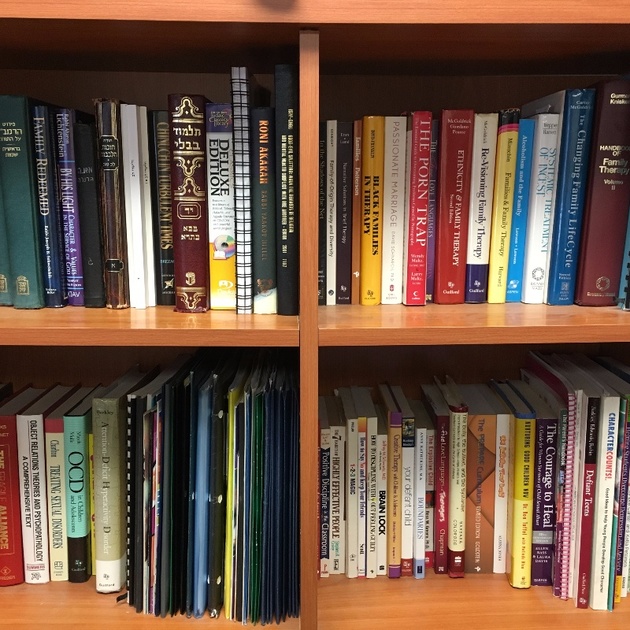
It’s been only a few months since the shocking revelations about popular children’s author, Chaim Walder, first emerged. Walder was accused of sexual assault and/or child sexual abuse by tens of women and girls, the vast majority of whom he’d been entrusted with helping.
Soon after the abuse was reported, some store owners stopped selling Walder’s books; Charedi media outlets took away the platforms they’d earlier given him. Within a month, Walder essentially authored the final chapter of his own life, by committing suicide.
Following the initial waves of shock, anger, and sadness, many of us have resolved to do better in protecting the children of our own communities. We’ve redoubled efforts to bring abuse prevention programs to schools and families. We’ve considered better ways to vet potential therapists and therapeutic programs.
Not a few people have turned their attention to a reminder of a seemingly more innocent time - his books. Many have argued that, out of respect for survivors of abuse, it’s time to remove the books of Chaim Walder from our shelves.
Perhaps, we are missing out on a more pressing question: Might we, as a community, still be sinking the hooks of Walder into ourselves and our children? By “hooks”, I mean the problematic interpersonal dynamics that immobilize us and our children, in situations that approximate abuse.
In particular, there is an interlocking system of three well-intentioned, albeit problematic, communal norms that render our children unnecessarily vulnerable to abuse.
1.When teaching about Da’as Torah (the general value of consulting with preeminent Torah scholars), some of us may advise those who are less knowledgeable in Torah - especially children - to set aside consistently their own intuition, yielding, in full, to the guidance of the Talmid Chacham (Torah scholar) in the room.
2.Many of our schools insist that children and parents sign a form affirming that they are not currently using problematic technology, even as administration knows that a sizable percentage of the families are, in fact, using the technology.
3.Part A: As teachers, we might reward students dressed in a “preferable” manner, by lavishing attention on them, while simultaneously withholding attention from those students who don’t pass muster, even when the latter are otherwise acting responsibly.
Part B: As parents, we might convey the message that our child’s personal choice (e.g., not to uphold a family standard of Mitzvah observance) would likely lead to our becoming physically ill or worse.
Each of these practices is problematic in and of itself. The first one denies children access to their budding capacity for wisdom; it stunts their growth, in their role as decision makers. The second creates an impossible bind for children whose families don’t abide by the tech rule, but who can’t imagine not attending their preferred school; their being obliged to sign a false affirmation drives home the lesson that truth can and should be sacrificed in the service of fitting in. The third set of practices is a form of manipulation. In each case, an adult is coercing a child to behave in a certain way, by convincing the child that non-compliance weakens their relationship or even threatens the adult’s wellbeing.
In particular, these beliefs and practices erode the strength and resolve of children who are, G-d forbid, on the cusp of being abused:
1. They are stripped of their own capacity to judge a situation as wrong or confusing. As long as the prominent abuser says “it’s OK,“ it must be OK.
2. They are trained to harbor two versions of reality; an official version that fits the preferred narrative and an unofficial version - truer, yet disturbing - that must be concealed. Thus, even when children intuitively sense that something is amiss, they are obliged to deny the presence of a problem.
3. They are groomed to protect adults and their relationships with adults, by acting, at least outwardly, as expected. Many abusers, in fact, enforce silence by warning their victims that coming forward would ruin their standing in school and/or destroy their parents. Still other abusers, like Walder, threaten to commit suicide, if the child discloses the abuse.
Whether or not we keep Walder’s books on our shelves, we do have the ability to remove his hooks from ourselves and our children. It is possible for us to instill an appreciation for Da’as Torah, without eradicating our children’s capacity for intuition. It’s possible for our schools to communicate their recommendations and expectations about technology, without cornering parents and students into a lie. It’s possible for us to encourage Tzniyus (modesty) and Mitzvah observance, without threatening our relationship with our children.
I sense that we, as a community, can safeguard our children’s intuition and their growing capacity to make autonomous decisions. I sense that we, as a community, can protect the space in which the values of genuineness and integrity can flourish. When we do so, we increase the likelihood that, if G-d forbid, our children become objects of predation, they recognize the unwholesomeness of the situation and they reach out, sooner or later, to an adult who can lead them toward safety.
Photo Credit: Unsplash: Ben White
 Previous
Previous

